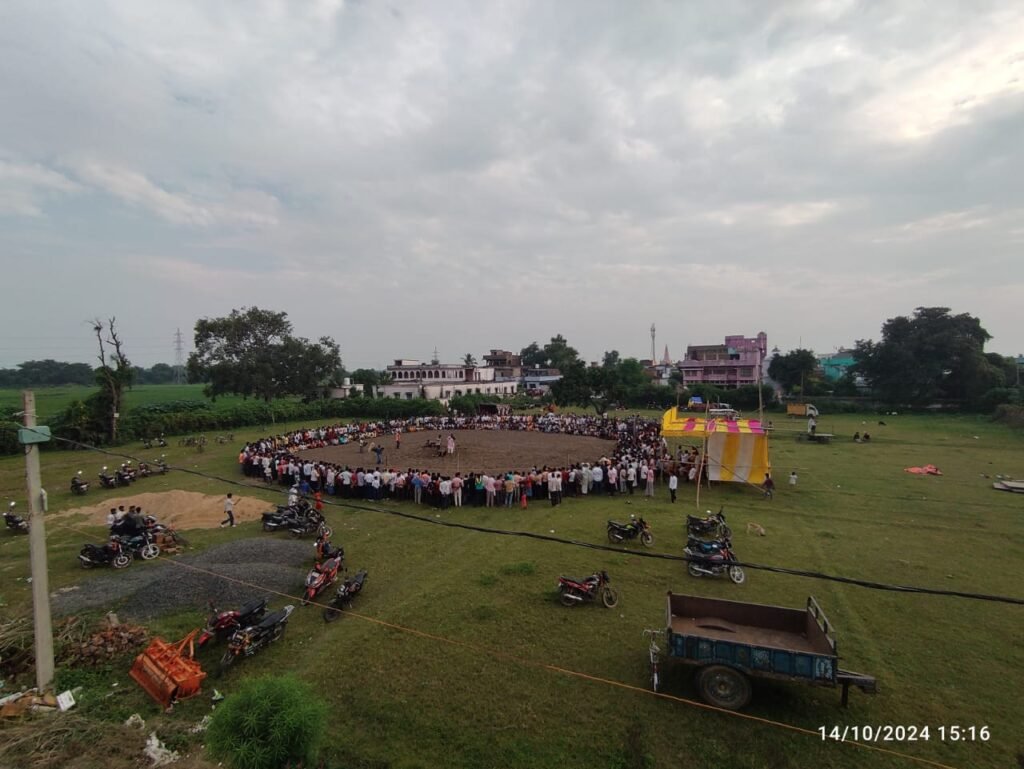Kutri Village Green Town Board of trustees- The Kutri Village Green Town Board of Trustees could have different types of trustees based on their roles and responsibilities. Typically, in a village or town governance structure, the Board of Trustees includes:
Education & Welfare Trustee – Works on educational initiatives and social welfare programs.
President / Chairperson – Leads the board, oversees meetings, and represents the town.
Vice President / Vice Chairperson – Assists the president and steps in when needed.
Secretary – Manages records, meeting minutes, and correspondence.
Treasurer – Handles financial matters, budgets, and accounting.
General Trustees – Members who provide input on policies, regulations, and community development.
Public Relations Trustee – Engages with the community, spreads awareness, and handles public concerns.
Planning & Development Trustee – Oversees infrastructure, zoning, and town improvements.
Environmental & Sustainability Trustee – Focuses on green initiatives, waste management, and sustainability efforts.
Legal & Compliance Trustee – Ensures adherence to laws, regulations, and policies.
What is Required Kutri Village Green Town Board of trustees
The Kutri Village Green Town Board of Trustees would require the following elements to function effectively:
1. Legal Formation & Governance Structure
- Registration under relevant local governance laws
- Drafting and approval of bylaws or a constitution
- Defining roles and responsibilities of trustees
2. Core Board Members
- Chairperson/President – Leads and represents the board
- Vice-Chairperson/Vice-President – Supports and substitutes the Chairperson
- Secretary – Maintains records, organizes meetings, and handles correspondence
- Treasurer – Manages financial records, budgeting, and reporting
- General Trustees – Contribute to decision-making and specific village development areas
3. Operational Requirements
- Regular Meetings – Monthly or quarterly meetings for decision-making
- Financial Management – Budget planning, fundraising, and transparent financial records
- Community Engagement – Public discussions, awareness programs, and grievance redressal
- Development Planning – Infrastructure, sustainability, and economic growth projects
4. Compliance & Legal Aspects
- Adherence to local government regulations
- Environmental and zoning laws compliance
- Annual reporting and audits
5. Committees (Optional but Recommended)
- Finance & Budgeting Committee – Oversees funds and expenditures
- Infrastructure & Development Committee – Plans town improvements
- Environmental & Sustainability Committee – Ensures eco-friendly initiatives
- Public Relations & Welfare Committee – Addresses community concerns and welfare programs
Who is Required Kutri Village Green Town Board of trustees
The Kutri Village Green Town Board of Trustees should include key individuals who can effectively manage and develop the village. The required trustees typically include:
1. Core Leadership Positions
- Chairperson / President – Leads the board, represents the village, and oversees major decisions.
- Vice-Chairperson / Vice-President – Assists the chairperson and steps in when needed.
- Secretary – Maintains records, organizes meetings, and handles official correspondence.
- Treasurer – Manages financial records, budgets, and ensures transparency in financial matters.
2. Specialized Trustees (Depending on the Village’s Needs)
- Infrastructure & Development Trustee – Oversees roadways, electricity, water supply, and new projects.
- Environmental & Sustainability Trustee – Manages green initiatives, waste disposal, and eco-friendly policies.
- Legal & Compliance Trustee – Ensures adherence to government laws and village policies.
- Public Relations & Welfare Trustee – Engages with the community and handles welfare initiatives.
- Education & Health Trustee – Focuses on schools, healthcare, and community well-being.
3. Community Representatives
- Farmers’ Representative – Represents the agricultural community and related concerns.
- Business & Trade Representative – Ensures local businesses thrive and supports economic activities.
- Youth & Sports Representative – Encourages youth participation and development programs.
- Women & Social Welfare Representative – Addresses gender-related and social issues in the village.
Each trustee should be a responsible and active member of the community, dedicated to improving the village’s welfare.
When is Required Kutri Village Green Town Board of trustees

The Kutri Village Green Town Board of Trustees is required in the following situations:
1. Formation of a Village Governance Body
- When the village wants to establish an official governing body for development and administration.
- Required to ensure structured decision-making and community representation.
2. Legal or Regulatory Requirements
- If local laws mandate the formation of a governing board for managing village affairs.
- Required for compliance with government regulations, funding, and legal recognition.
3. Infrastructure & Development Needs
- When the village needs organized efforts for roads, water supply, electricity, and sanitation improvements.
- Required for planning and executing village development projects.
4. Environmental & Sustainability Initiatives
- When the village requires management of green spaces, waste disposal, and eco-friendly policies.
- Required to promote sustainable living and conservation efforts.
5. Financial Management & Fundraising
- When the village needs proper budgeting, financial transparency, and fundraising efforts.
- Required to manage funds for public welfare, education, and healthcare services.
6. Crisis Management & Disaster Response
- During emergencies such as floods, droughts, or pandemics, the board ensures proper response.
- Required to organize relief efforts, safety measures, and community support.
7. Election & Governance Transition
- When an existing board completes its term and new trustees need to be appointed or elected.
- Required for maintaining continuous governance without disruptions.
Where is Required Kutri Village Green Town Board of trustees
The Kutri Village Green Town Board of Trustees is required in various areas of village governance and administration. It is essential in the following places:
1. Village Administration & Governance
- At the Kutri Village Panchayat Office to oversee local governance and decision-making.
- In public meetings and forums to interact with the community and address concerns.
2. Infrastructure & Development Projects
- At construction sites for roads, water supply, electricity, and sanitation improvements.
- In planning offices where development strategies are formulated and approved.
3. Financial Management & Budgeting
- In financial offices or banks where village funds, grants, and taxes are managed.
- During government audits and financial reporting to ensure transparency.
4. Environmental & Sustainability Initiatives
- In village green spaces, parks, and agricultural lands to oversee eco-friendly initiatives.
- At waste management centers and water conservation sites for sustainable village management.
5. Education, Health & Welfare Services
- At schools and health centers to improve educational and medical facilities.
- In community welfare centers to support women, children, and the elderly.
6. Public Relations & Legal Compliance
- In government offices and legal courts for compliance with state and national laws.
- At public grievance centers to address complaints and resolve community issues.
How is Required Kutri Village Green Town Board of trustees

The Kutri Village Green Town Board of Trustees is required through a structured process that ensures effective governance, legal compliance, and community participation. Below is the step-by-step process for how it is required and formed:
1. Establishing the Need for a Board
- Conduct community meetings to assess the need for governance.
- Identify key areas like infrastructure, environment, education, and welfare that require management.
- Ensure compliance with local government laws and regulations.
2. Legal Formation & Registration
- Draft a constitution or bylaws outlining the board’s structure, roles, and responsibilities.
- Register with the local government or municipal authorities if legally required.
- Define the term limits and selection criteria for trustees.
3. Trustee Selection Process
- Conduct public elections if democratic selection is preferred.
- Alternatively, appoint trustees based on qualifications and expertise.
- Ensure representation from farmers, business owners, youth, women, and environmentalists.
4. Defining Responsibilities & Governance
Each trustee is assigned specific duties:
- Chairperson/President: Leads the board and represents the village.
- Secretary: Maintains records, organizes meetings, and manages communication.
- Treasurer: Oversees financial transactions, budgeting, and fundraising.
- Infrastructure Trustee: Manages roads, water, electricity, and housing projects.
- Environment Trustee: Focuses on sustainability, waste management, and green projects.
- Health & Education Trustee: Oversees schools, healthcare, and welfare programs.
5. Regular Meetings & Decision-Making
- Hold monthly or quarterly meetings to discuss progress and challenges.
- Engage in public consultations to ensure transparency and community participation.
- Document decisions and publish reports for accountability.
6. Implementation of Projects & Policies
- Develop strategic plans for village development.
- Coordinate with government agencies for funding and approvals.
- Monitor and evaluate projects to ensure efficiency and sustainability.
7. Financial Management & Transparency
- Establish a budget and allocate funds responsibly.
- Maintain financial records and conduct audits to prevent corruption.
- Seek funding through government grants, donations, or local businesses.
8. Compliance & Renewal
- Ensure adherence to legal and environmental regulations.
- Review trustee performance and replace inactive members when necessary.
- Conduct re-elections or reappointments as per the board’s rules.
Case Study on Kutri Village Green Town Board of trustees
Introduction
Kutri Village, a small but rapidly developing rural settlement, faced challenges related to infrastructure, environmental sustainability, and community welfare. To address these issues, the village established the Kutri Village Green Town Board of Trustees, a governing body responsible for managing the village’s growth and ensuring sustainable development.
Background
Located in a semi-rural region, Kutri Village struggled with poor waste management, inadequate roads, and limited access to clean water. The community lacked a structured decision-making body to oversee development and ensure equitable resource distribution. To bridge this gap, the local leaders proposed forming a Board of Trustees to handle administrative, financial, and developmental responsibilities.
Formation of the Board
The Board of Trustees was established through a democratic process involving village elections. Key positions were filled based on expertise and community representation:
- Chairperson: Leads the board and oversees major projects.
- Vice-Chairperson: Assists in leadership and decision-making.
- Secretary: Maintains records, organizes meetings, and manages correspondence.
- Treasurer: Handles financial matters, budgeting, and audits.
- Infrastructure & Development Trustee: Oversees road construction, water supply, and electrification.
- Environmental & Sustainability Trustee: Focuses on waste management, tree plantation, and eco-friendly initiatives.
- Public Relations & Welfare Trustee: Engages with the community and ensures welfare programs reach the needy.
- Education & Health Trustee: Improves school facilities and healthcare services.
Key Initiatives and Projects
- Infrastructure Development
- Constructed paved roads to improve transportation.
- Installed solar-powered streetlights for energy efficiency.
- Implemented a clean drinking water supply project.
- Environmental Sustainability
- Launched a waste segregation and recycling program.
- Planted over 2,000 trees to combat deforestation.
- Established a biogas plant to utilize organic waste effectively.
- Financial Management & Transparency
- Created a digital record-keeping system for financial transactions.
- Implemented an annual audit to ensure accountability.
- Partnered with government agencies for grants and funding.
- Community Welfare Programs
- Conducted free medical camps and health awareness drives.
- Established a scholarship fund for underprivileged students.
- Launched skill development workshops for youth and women.
Challenges Faced
- Resistance to Change: Some villagers initially opposed new policies due to traditional practices.
- Funding Issues: Limited financial resources delayed certain projects.
- Coordination with Government Bodies: Bureaucratic delays hindered project approvals.
Impact and Outcomes
- Improved Quality of Life: Better roads, water, and healthcare facilities enhanced the standard of living.
- Environmental Awareness: The village became a model for sustainable practices in the region.
- Economic Growth: Skill development programs increased employment opportunities.
Conclusion & Future Plans
The Kutri Village Green Town Board of Trustees successfully transformed the village through planned governance and community participation. Moving forward, the board aims to:
- Expand solar energy projects.
- Improve digital literacy programs.
- Strengthen public-private partnerships for economic development.
This case study highlights the power of structured governance in rural development and serves as an inspiration for other villages seeking sustainable progress.
White paper on Kutri Village Green Town Board of trustees
1. Introduction Kutri Village Green Town is a progressive community dedicated to sustainable development, environmental conservation, and community-driven governance. The Board of Trustees plays a crucial role in ensuring the town’s growth aligns with its green initiatives and sustainable development goals.
2. Purpose of the Board of Trustees The Board of Trustees serves as the governing body responsible for overseeing the town’s operations, policy-making, and strategic planning. The primary objectives include:
- Maintaining and improving green spaces and sustainability projects.
- Ensuring transparent governance and financial accountability.
- Encouraging community participation and stakeholder engagement.
- Developing policies that support environmental and economic sustainability.
- Partnering with organizations for ecological conservation and green technology integration.
3. Structure and Composition The Board consists of elected and appointed members, including:
- Chairperson – Leads board meetings and strategic decision-making.
- Vice-Chairperson – Assists the Chairperson and steps in when necessary.
- Secretary – Maintains records, meeting minutes, and correspondence.
- Treasurer – Oversees financial planning, budgeting, and reporting.
- Committee Members – Experts and representatives focusing on different areas such as environmental policies, infrastructure, and public services.
4. Key Initiatives and Projects The Board of Trustees spearheads various initiatives aimed at enhancing sustainability and community welfare, including:
- Green Infrastructure Development: Establishing eco-friendly roads, rainwater harvesting systems, and solar-powered street lighting.
- Community Engagement Programs: Encouraging local participation in environmental conservation activities.
- Renewable Energy Projects: Promoting the use of solar and wind energy within the community.
- Waste Management and Recycling: Implementing effective waste reduction strategies.
- Sustainable Agriculture: Supporting local farmers in adopting eco-friendly farming techniques.
5. Governance and Accountability The Board adheres to principles of transparency, ethical governance, and inclusivity. Measures include:
- Publicly available meeting records and financial reports.
- Regular audits to ensure financial integrity.
- Open forums for residents to voice concerns and suggestions.
- Compliance with local, state, and national environmental regulations.
6. Industrial Applications Kutri Village Green Town’s Board of Trustees plays a crucial role in promoting sustainable industrial development. Key industrial applications include:
- Eco-Industrial Parks: Establishing environmentally friendly industrial zones with sustainable infrastructure.
- Green Manufacturing: Encouraging local industries to adopt renewable energy sources and energy-efficient practices.
- Waste-to-Energy Projects: Partnering with industries to convert industrial waste into usable energy.
- Water Conservation in Industries: Implementing rainwater harvesting and water recycling systems for industrial use.
- Smart Logistics and Transportation: Promoting electric vehicles and sustainable supply chain solutions to reduce carbon footprints.
- Sustainable Construction Practices: Ensuring industrial buildings comply with green building standards and use eco-friendly materials.
- Industrial Training and Awareness: Providing workshops and training programs for industries to integrate sustainability into their operations.
7. Community Participation and Future Outlook Active community participation is key to the success of Kutri Village Green Town. The Board encourages:
- Volunteer programs for local conservation projects.
- Public workshops on sustainable living.
- Partnerships with educational institutions for research and development.
- Future expansion of green spaces and smart city technology.
8. Conclusion The Kutri Village Green Town Board of Trustees remains committed to fostering a sustainable, eco-friendly, and thriving community. Through effective governance, community collaboration, and innovative green initiatives, the Board envisions a future where Kutri Village serves as a model for sustainable development and environmental responsibility, including industrial growth that aligns with ecological sustainability.
Industrial Application of Kutri Village Green Town Board of trustees
1. Introduction Kutri Village Green Town is a progressive community dedicated to sustainable development, environmental conservation, and community-driven governance. The Board of Trustees plays a crucial role in ensuring the town’s growth aligns with its green initiatives and sustainable development goals.
2. Purpose of the Board of Trustees The Board of Trustees serves as the governing body responsible for overseeing the town’s operations, policy-making, and strategic planning. The primary objectives include:
- Maintaining and improving green spaces and sustainability projects.
- Ensuring transparent governance and financial accountability.
- Encouraging community participation and stakeholder engagement.
- Developing policies that support environmental and economic sustainability.
- Partnering with organizations for ecological conservation and green technology integration.
3. Structure and Composition The Board consists of elected and appointed members, including:
- Chairperson – Leads board meetings and strategic decision-making.
- Vice-Chairperson – Assists the Chairperson and steps in when necessary.
- Secretary – Maintains records, meeting minutes, and correspondence.
- Treasurer – Oversees financial planning, budgeting, and reporting.
- Committee Members – Experts and representatives focusing on different areas such as environmental policies, infrastructure, and public services.
4. Key Initiatives and Projects The Board of Trustees spearheads various initiatives aimed at enhancing sustainability and community welfare, including:
- Green Infrastructure Development: Establishing eco-friendly roads, rainwater harvesting systems, and solar-powered street lighting.
- Community Engagement Programs: Encouraging local participation in environmental conservation activities.
- Renewable Energy Projects: Promoting the use of solar and wind energy within the community.
- Waste Management and Recycling: Implementing effective waste reduction strategies.
- Sustainable Agriculture: Supporting local farmers in adopting eco-friendly farming techniques.
5. Governance and Accountability The Board adheres to principles of transparency, ethical governance, and inclusivity. Measures include:
- Publicly available meeting records and financial reports.
- Regular audits to ensure financial integrity.
- Open forums for residents to voice concerns and suggestions.
- Compliance with local, state, and national environmental regulations.
6. Industrial Applications Kutri Village Green Town’s Board of Trustees plays a crucial role in promoting sustainable industrial development. Key industrial applications include:
- Eco-Industrial Parks: Establishing environmentally friendly industrial zones with sustainable infrastructure.
- Green Manufacturing: Encouraging local industries to adopt renewable energy sources and energy-efficient practices.
- Waste-to-Energy Projects: Partnering with industries to convert industrial waste into usable energy.
- Water Conservation in Industries: Implementing rainwater harvesting and water recycling systems for industrial use.
- Smart Logistics and Transportation: Promoting electric vehicles and sustainable supply chain solutions to reduce carbon footprints.
- Sustainable Construction Practices: Ensuring industrial buildings comply with green building standards and use eco-friendly materials.
- Industrial Training and Awareness: Providing workshops and training programs for industries to integrate sustainability into their operations.
7. Community Participation and Future Outlook Active community participation is key to the success of Kutri Village Green Town. The Board encourages:
- Volunteer programs for local conservation projects.
- Public workshops on sustainable living.
- Partnerships with educational institutions for research and development.
- Future expansion of green spaces and smart city technology.
8. Conclusion The Kutri Village Green Town Board of Trustees remains committed to fostering a sustainable, eco-friendly, and thriving community. Through effective governance, community collaboration, and innovative green initiatives, the Board envisions a future where Kutri Village serves as a model for sustainable development and environmental responsibility, including industrial growth that aligns with ecological sustainability.
References
- ^ Jump up to:a b “Nawada District Census Handbook Page No. 3 for Population and Page No. 76 for Village Code” (PDF).
- ^ Jump up to:a b “Postal Code (PIN) and STD Code”.
- ^ “Details of Blocks and Villages of Nawada District”.
- ^ “Panchayat and Village Details of Nawada” (PDF).
- ^ Frawley, William (May 2003). International Encyclopedia of Linguistics: 4-Volume Set By William Frawley. ISBN 9780195139778.
- ^ “Station: Patna Climatological Table 1981–2010” (PDF). Climatological Normals 1981–2010. India Meteorological Department. January 2015. pp. 601–602. Archived from the original (PDF) on 5 February 2020. Retrieved 2 March 2020.
- ^ “Extremes of Temperature & Rainfall for Indian Stations (Up to 2012)” (PDF). India Meteorological Department. December 2016. p. M36. Archived from the original (PDF) on 5 February 2020. Retrieved 2 March 2020.
- ^ “Table 3 Monthly mean duration of Sun Shine (hours) at different locations in India” (PDF). Daily Normals of Global & Diffuse Radiation (1971–2000). India Meteorological Department. December 2016. p. M-3. Archived from the original (PDF) on 5 February 2020. Retrieved 2 March 2020.
- ^ “Higher Secondary School List SL. No. 64”.
- “US Board on Geographic Names”. United States Geological Survey. October 25, 2007. Retrieved January 31, 2008.
- ^ “Greene township, Trumbull County, Ohio – Census Bureau Profile”. United States Census Bureau. Retrieved August 29, 2023.
- ^ “U.S. Census website”. United States Census Bureau. Retrieved January 31, 2008.
- ^ https://www.postalhistory.com/postoffices.asp?task=display&searchtext=Greensburgh&state=&county=&searchtype=word Postal History (see entry for Greensburgh, Trumbull County, Ohio)
- ^ Overman, William Daniel (1958). Ohio Town Names. Akron, OH: Atlantic Press. p. 54.
- ^ “Detailed map of Ohio” (PDF). United States Census Bureau. 2000. Retrieved February 16, 2007.
- ^ §503.24, §505.01, and §507.01 of the Ohio Revised Code. Accessed April 30, 2009.
- “US Board on Geographic Names”. United States Geological Survey. October 25, 2007. Retrieved January 31, 2008.
- ^ “Green township, Ross County, Ohio – Census Bureau Profile”. United States Census Bureau. Retrieved August 14, 2023.
- ^ “U.S. Census website”. United States Census Bureau. Retrieved January 31, 2008.
- ^ “Detailed map of Ohio” (PDF). United States Census Bureau. 2000. Retrieved February 16, 2007.
- ^ §503.24, §505.01, and §507.01 of the Ohio Revised Code. Accessed 4/30/2009.
- Epstein, David A. (2012). Left, Right, Out: The History of Third Parties in America. Arts and Letters Imperium Publications. ISBN 978-0-578-10654-0.
- ^ “Global Greens Charter”. Global Greens. 2012. Archived from the original on 2017-11-15. Retrieved 2018-01-15.
- ^ Dann, Christine. “The development of the first two Green parties New Zealand and Tasmania”. From Earth’s last islands. The global origins of Green politics. Global Greens. Archived from the original on June 10, 2011.
- ^ Bevan, RA (2001), Petra Kelly: The Other Green, New Political Science, vol. 23, no. 2, November, pp. 181-202
- ^ Oesch, Daniel (January 1, 2013). “Chapter 3: The class basis of the cleavage between the New Left and the radical right: An analysis for Austria, Denmark, Norway and Switzerland”. In Rydgren, Jens (ed.). Class Politics and the Radical Right. London: Routledge. pp. 31–51. ISBN 978-0415690522.
- ^ Dolezal, Martin (Summer 2010). “Exploring the Stabilisation of a Political Force: The Social and Attitudinal Basis of Green Parties in the Age of Globalisation”. West European Politics. 33 (3): 534–552. doi:10.1080/01402381003654569. S2CID 154994735.
- ^ Grant, Zack P.; Tilley, James (Autumn 2018). “Fertile Soil: Explaining variation in the success of Green parties”. West European Politics. 42 (3): 495–516. doi:10.1080/01402382.2018.1521673.
- ^ Jump up to:a b c Carter, N. (2018). The Politics of the Environment: Ideas, Activism, Policy (3rd ed.). Cambridge: Cambridge University Press. p. 120.
- ^ “Green politics make their debut”. RFI. March 4, 2010.
- ^ “Africa’s Green parties bet on international help | DW | 15.07.2019”. DW.COM.
- ^ “Wangari Maathai biography | Women”. en.unesco.org.
- ^ “Distinguished African Greens”. African Green Federation. June 17, 2011.
- ^ “Two opposition lawmakers elected in Rwanda for the first time”. September 5, 2018 – via www.reuters.com.
- ^ “How Haidar el Ali became one of Africa’s best-known environmentalists”. Christian Science Monitor. October 20, 2016.
- ^ New Zealand Electoral Commission. “NEW ZEALAND 2023 GENERAL ELECTION – OFFICIAL RESULTS”.
- ^ “Moana Carcasses named new Vanuatu PM”, Radio Australia, 25 March 2013
- ^ “Moana Carcassés Kalosil”, IMF
- ^ “Nation’s interest first: Carcasses” Archived 2013-03-29 at the Wayback Machine, Vanuatu Daily Post, 26 March 2013
- ^ “Papua New Guinea Greens Party” Archived 2012-08-19 at the Wayback Machine, Integrity of Political Parties and Candidates Commission
- ^ “Going Green”, Fiji Sun, 2 June 2013
- ^ “Green Party holds annual congress in Beirut | News, Lebanon News”. The Daily Star. 2010-02-12. Archived from the original on 2013-06-19. Retrieved 2013-08-29.
- ^ “Lebanon’s Green Party | The Lebanese Inner Circle : Blog”. Theinnercircle.wordpress.com. 2008-08-22. Retrieved 2013-08-29.
- ^ “A Green Party Grows in Lebanon”. Green Prophet. 2009-12-07. Retrieved 2013-08-29.
- ^ “Green Party becomes first in Lebanon to elect female leader | News, Lebanon News”. The Daily Star. 2011-09-06. Retrieved 2013-08-29.
- ^ Gray, Louise (7 May 2010). “General Election 2010: first Green MP edges out Labour”. The Daily Telegraph. Retrieved 6 December 2016.
- ^ Cik, Central Electoral Commission. “РЕШЕНИЕ № 1309-НС София, 17 август 2022 г.” cik.bg. Archived from the original on 2023-03-02.
- ^ “Text about the Green East-West Dialogue”. Archived from the original on January 10, 2003.
- ^ “The Green East-West Dialogue”. Archived from the original on January 13, 2003.
- ^ “Leftist-green candidate elected mayor of Croatia’s capital”. The Independent. 2021-05-30. Retrieved 2021-12-15.
- ^ Carter, N. (2018). The Politics of the Environment: Ideas, Activism, Policy (3rd ed.). Cambridge: Cambridge University Press. p. 122.
- ^ Partisi, Yeşiller (September 21, 2020). “Greens in Turkey Launch Green Party!”.
- ^ “Seven things to know about the P.E.I. election results”. CTV News, April 23, 2019.
- ^ “B.C. Green Party agrees to support NDP in the legislature”. CBC News, May 29, 2017.
- ^ “Canada election 2019: Results from the federal election”. Global News, October 21, 2019.
- ^ “Liberal MP Blair Wilson Goes Green, Giving the Party Its First Seat on Parliament Hill – CityNews”. Archived from the original on 2011-06-29. Retrieved 2010-04-25.
- ^ “Green Party Officeholders 2016 :: Mayors”. Gp.org. Archived from the original on 2013-09-22. Retrieved 2013-08-29.
- ^ Jump up to:a b “Officeholders”. www.gp.org.






